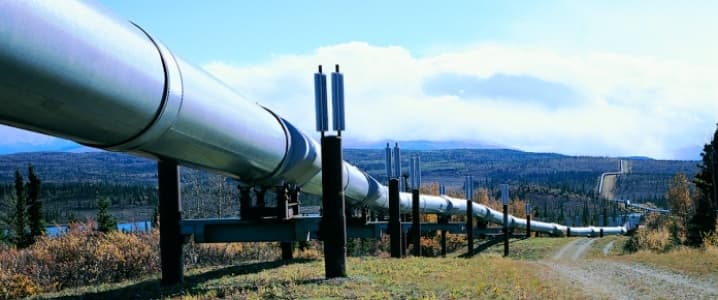Nigeria’s Department of Petroleum Resources, last week released an appraisal report of the country’s oil sector, in 2017, with overlapping impact on current outlook.
It disclosed that a total number of 101 oilfields were shut – in while 184 remained in production with average daily production of 2 million barrels. Most of the affected fields that were constrained to shut – in did so because of willful damages to their pipelines, the report said.
Nigeria Agip Oil Company (NAOC) attributed the shut-in of 13 fields to facility sabotage although it kept 20 other fields active.
TOTAL E&P shut- in 8 of its oilfields and was left with 10 fields while ADDAX Petroleum also recorded 8 of its fields becoming inactive but 14 others remained in production.
The report, however, showed Mobil Upstream as the country’s largest oil producer at 250,000 barrels of oil per day (BOPD) followed by Chevron`s 199,000 barrels.
READ: Gaps In The Gas Flare Commercialization Program By Jerome-Mario Utomi
Shell Nigeria Exploration trailed behind with 170,000 barrels per day having shut – in 25 of its oil fields, although 35 others remained active.
The Trans Forcados Pipeline, a major trunk line shared by several producers, including Shell Petroleum, was mentioned as a high-risk bottleneck, being an easy target of attacks by saboteurs, with Aiteo Petroleum, operator of OML 29 as a further case in point. It shut in a field because of its immediate connection to this pipeline.
Pan Ocean Petroleum for instance, also shut in 7 of its fields and was left with 1 field, while the State-owned oil company, NPDC also shut in a total of 14 fields, but was able to keep 10 in operations.
The streak of disabled oilfields cut across all classes of onshore producers with the exemptions of smaller marginal field operators with single field assets.
During the public presentation of the report, Mr. Mordecai Ladan, Director, Department of Petroleum Resources said, appreciable progress is being made though, to re-stabilize operations in the Niger Delta region, with some fields returning to production. He further said future outlook is dependent on sustaining the ongoing reforms aimed at creating a conducive operating environment.
The Country’s Minister of State for Petroleum, Dr Ibe Kachikwu was rather more decisive in his view as he insisted on moving the country into the Deep Offshore terrain as a quicker solution to the elusive challenge of the Niger Delta region.
The report corroborated the Minister’s position as it showed that 325 Bscf of gas went up in flames as flared gas, mainly because facilities were regularly under attack or insufficient to harness the large volume of Associated Gas. This is obvious to imagine because there is really no connection between crude oil production and its flow – back into the domestic economy, the report graciously admitted.
Put in modest perspective, it means the loss of 600,000mt of LPG to a domestic market that is in dire need for cleaner fuels or thermal power plants that are now forced to generate less than 5000 mw of electricity.
However, International market demand for the country’s crude remained upbeat, the report said, with Europe accounting for 37% while Asia with 27% was ahead of North/S. America’s 22%.
The Deep Offshore terrain, said our analyst, may hold the key in redefining Nigeria’s oil industry because the impact of International Best Practice may trickle down into onshore activities.

